
International Journal of Cyber Criminology
Scope & Guideline
Advancing the discourse on cybercrime and digital justice.
Introduction
Aims and Scopes
- Cybercrime Legislation and Policy:
The journal examines existing laws and regulations related to cybercrime, analyzing their effectiveness, limitations, and the need for reforms to address emerging challenges. - Digital Forensics and Investigative Techniques:
Research on methodologies and technologies for investigating cybercrimes, including forensic techniques and the role of artificial intelligence in digital investigations. - Impact of Cybercrime on Society:
Exploration of the social implications of cybercrime, including issues such as cyberbullying, discrimination, and the psychological effects on victims. - Cybersecurity Awareness and Compliance:
Studies focusing on the importance of cybersecurity awareness among individuals and organizations, including compliance with cybersecurity policies and regulations. - Comparative Analyses of Cybercrime Responses:
Comparative studies of how different jurisdictions address cybercrime, looking at the effectiveness of various legal frameworks and law enforcement strategies.
Trending and Emerging
- Artificial Intelligence and Cybercrime:
Increasing studies on the role of artificial intelligence in both facilitating and combating cybercrime, reflecting the growing relevance of AI technologies in digital security. - Cybersecurity in the Workplace:
A notable increase in publications addressing cybersecurity challenges faced by employees in digital workplaces, emphasizing the importance of organizational policies and individual awareness. - Gender and Cyber Violence:
Emerging research focusing on gender-based cyber violence, including cyberbullying and discrimination against women, highlighting the need for targeted interventions. - Interdisciplinary Approaches to Cybercrime:
A trend towards interdisciplinary research that combines legal, technological, and psychological perspectives to address complex cybercrime issues. - Impact of Digital Transformation on Cybercrime:
Growing interest in how digital transformation across various sectors influences the nature of cybercrime and the legal responses required to manage these changes.
Declining or Waning
- Traditional Criminal Justice Approaches:
There appears to be a decreasing emphasis on conventional criminal justice responses to cybercrime, possibly as scholars shift towards more innovative and technology-driven approaches. - Focus on Cybercrime in Specific Regions:
Research concentrating solely on cybercrime issues within specific countries or regions, such as Indonesia or Iraq, is becoming less frequent, suggesting a potential move towards more global or comparative perspectives. - Historical Perspectives on Cybercrime:
Papers that delve into the historical evolution of cybercrime and its legal frameworks are appearing less often, indicating a growing preference for contemporary and forward-looking analyses.
Similar Journals

Revista General de Derecho Penal
Fostering scholarly insights in criminal law.Revista General de Derecho Penal, published by IUSTEL, is a premier academic journal dedicated to the dynamic field of criminal law. With an ISSN of 1698-1189, this journal serves as a crucial platform for researchers, legal professionals, and students to share their insights and findings related to penal law and its evolving applications in contemporary society. Although it is not an open access journal, it maintains high scholarly standards, helping to advance discourse in legal studies. The journal's address is C PRINCESA NO 29, 2A DCHA, MADRID 28008, SPAIN, positioning it within a vibrant academic community. With a focus on current legal challenges and theoretical advancements, Revista General de Derecho Penal plays an essential role in fostering understanding and developing effective legal frameworks in criminal justice, making it an invaluable resource for those engaged in the study and practice of law.
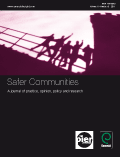
Safer Communities
Exploring the nexus of law, health, and community safety.Safer Communities is a distinguished academic journal published by Emerald Group Publishing Ltd, focusing on the intersections of community safety, law, public health, and safety research. Since its inception in 2002, this journal has offered a platform for rigorous empirical studies, theoretical discussions, and insightful reviews that aim to enhance safety standards and practices globally. With an impressive Scopus ranking in various categories, including Law and Community and Home Care, the journal consistently demonstrates its relevance and critical contribution to these multidisciplinary fields. Operating within the United Kingdom, Safer Communities invites contributions that address contemporary issues affecting community safety, making it a vital resource for researchers, practitioners, and students alike. The journal is committed to fostering accessible, high-quality research without the limitations of open access, thus serving a wide audience eager to advance their understanding of safety dynamics in various contexts. With its ongoing commitment to academic excellence and community engagement, Safer Communities remains a pivotal journal for those dedicated to enhancing societal safety and well-being.
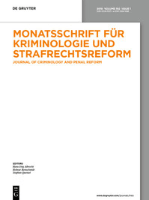
Monatsschrift fur Kriminologie und Strafrechtsreform
Exploring the Intersection of Crime and Reform.Monatsschrift für Kriminologie und Strafrechtsreform is a prestigious academic journal dedicated to advancing the fields of criminology and legal reform. Published by WALTER DE GRUYTER GMBH in Germany, this journal boasts a significant history since its inception in 1943, continually evolving its focus and scope from 2010 to 2024 to address contemporary issues in law and criminal justice. With an impressive Q2 rating in Law and a ranking in the 46th percentile among social sciences law journals, it serves as a vital resource for researchers, practitioners, and students alike. By publishing innovative articles, critical reviews, and comprehensive studies, the journal aims to foster academic discourse and propel discussions surrounding legislative reforms and criminological theories. Although it does not currently offer open access, readers can obtain valuable insights that contribute to both academic scholarship and practical applications in the legal field, thereby enhancing the understanding of complex societal dynamics related to crime and law enforcement.

International E-Journal of Criminal Sciences
Exploring the Frontiers of Criminal Science KnowledgeWelcome to the International E-Journal of Criminal Sciences, a distinguished platform dedicated to the rigorous exploration of contemporary issues within the field of criminal sciences. Published by the DMS INT RESEARCH CENTRE, this journal aims to disseminate high-quality research and critical analyses that foster a deeper understanding of criminal behavior, law enforcement strategies, justice systems, and related societal impacts. With its commitment to open access, it ensures that knowledge is readily available to a global audience, promoting inclusivity and academic collaboration across borders. Although specific metrics like impact factor and H-index have yet to be established, its relevance and contribution to the discourse on criminal sciences remain significant. Researchers, professionals, and students are invited to engage with the journal’s valuable insights, as it strives to become a leading resource for innovative thought and evidence-based solutions in the evolving landscape of criminal science.

Revista de Estudios en Seguridad Internacional-RESI
Pioneering Research for Tomorrow's Security SolutionsRevista de Estudios en Seguridad Internacional (RESI) is a distinguished academic journal dedicated to the exploration and analysis of international security issues. Published by the University of Granada's Faculty of Political Science and Sociology, this journal has been on the forefront of critical security studies since its Open Access inception in 2015, providing a platform for researchers, practitioners, and students to share innovative ideas and scholarly work. With a focus on contemporary themes in international security, RESI encourages interdisciplinary dialogue and engagement, fostering a deeper understanding of global challenges. As a vital resource for those involved in political science and security studies, the journal aims to disseminate rigorous research that contributes to both academic scholarship and practical applications in policy-making. Researchers and professionals alike will find RESI an invaluable space for advancing their inquiries and sharing their findings with a global audience.
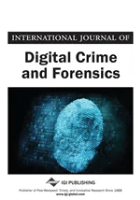
International Journal of Digital Crime and Forensics
Exploring Innovations in Cybercrime AnalysisWelcome to the International Journal of Digital Crime and Forensics, an esteemed publication spearheaded by IGI Global, dedicated to advancing research and disseminating knowledge in the crucial fields of cybersecurity, digital crime, and forensic analysis. With its inaugural issue published in 2009, this journal has continually focused on providing a platform for innovative research, insightful case studies, and practical solutions aimed at addressing contemporary challenges in digital criminal activity and forensic investigation. While currently classified in the Q4 Category for software within the Computer Science domain according to 2023 rankings, and positioned in the 32nd percentile of Scopus Ranks, the journal remains committed to enhancing its impact and visibility in the scholarly community. By maintaining a rigorous peer-review process, the journal ensures high-quality contributions that equip researchers, professionals, and students with essential tools and knowledge. Although the journal operates under a subscription model, it plays an integral role in shaping the discourse surrounding digital crime and forensics, making it an indispensable resource for anyone serious about understanding and combating digital threats.
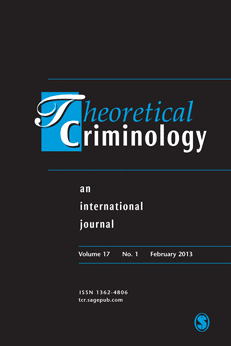
THEORETICAL CRIMINOLOGY
Exploring the Depths of Criminological TheoryTHEORETICAL CRIMINOLOGY is a premier academic journal published by SAGE PUBLICATIONS LTD that serves as a vital platform for the dissemination of cutting-edge research in the realms of law, sociology, and forensic medicine. Established in 1997 and converging into a comprehensive resource through 2024, this journal has achieved a remarkable reputation with a 2023 Q1 ranking in Law as well as in Sociology and Political Science, underscoring its influential contributions to these disciplines. Situated in the United Kingdom, it is recognized for its rigorous peer-reviewed content and holds prestigious positions in Scopus rankings, including Rank #34 in Social Sciences - Law and Rank #38 in Medicine - Pathology and Forensic Medicine, reflecting its commitment to academic excellence. Although it does not currently offer open access options, the journal ensures that its articles are accessible through institutional subscriptions, making it an indispensable resource for researchers, professionals, and students aiming to deepen their understanding of theoretical frameworks and contemporary issues in criminology.
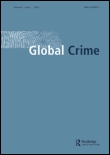
Global Crime
Fostering Dialogue for a Safer Global CommunityGlobal Crime is a leading scholarly journal published by Routledge Journals, Taylor & Francis Ltd, focusing on the multifaceted dimensions of crime and justice on a global scale. With an ISSN of 1744-0572 and E-ISSN of 1744-0580, this journal serves as a critical platform for researchers, practitioners, and policymakers interested in the intersection of legal studies, political science, and sociological perspectives. The journal boasts a prestigious Q1 ranking in Law and notable Q2 rankings in Political Science and International Relations, as well as Sociology, highlighting its influential role in shaping academic discourse. In 2023, it ranked #88 out of 1025 journals in Law, placing it in the 91st percentile, thus ensuring its status as an essential resource for those engaged in advanced research. While it does not currently offer open access options, Global Crime continuously seeks to illuminate the complexities of crime, fostering a better understanding through comprehensive studies, critical analyses, and innovative approaches. By converging insights from various disciplines, the journal aims to facilitate dialogue among academics and practitioners alike, ultimately advancing the field of criminal justice globally.

International Journal of Electronic Security and Digital Forensics
Pioneering research in the realms of digital security and forensics.The International Journal of Electronic Security and Digital Forensics, published by INDERSCIENCE ENTERPRISES LTD, is a leading platform for disseminating scholarly research in the realms of cybersecurity, digital forensics, and electronic security. Established with the objective of bridging the gap between theoretical advancements and practical applications, the journal spans critical areas such as network security, legal implications of digital forensics, and reliability in safety measures. With its ISSN 1751-911X and E-ISSN 1751-9128, the journal aims to provide valuable insights into emerging technologies and methodologies while maintaining high academic standards, as reflected in its diverse quartile rankings across multiple categories in 2023. Operating from the United Kingdom and catering to a global audience, the journal is committed to fostering innovative research that contributes to safer digital environments. Researchers, professionals, and students will find a wealth of information and opportunities for collaboration in this specialized field, making International Journal of Electronic Security and Digital Forensics an essential resource for advancing knowledge and practice.

Trends in Organized Crime
Exploring the Complexities of Organized CrimeTrends in Organized Crime, published by SPRINGER, is a premier journal dedicated to the exploration and analysis of organized crime phenomena. With an impressive impact factor and ranked in the Q1 category for Law, this journal reflects the highest echelon of scholarly work, positioning itself at the forefront of legal and social sciences research. Established in 1995 and extending its impact through 2024, the journal serves as a crucial resource for academics, practitioners, and policymakers seeking to understand the complexities of organized crime and its implications on society. While not an Open Access journal, it provides robust access options for scholarly articles, making it a vital tool for those engaged in legal studies and criminology. By fostering interdisciplinary dialogues, Trends in Organized Crime aims to illuminate contemporary issues, promote innovative methodologies, and enhance the collective understanding of criminal organizations globally.